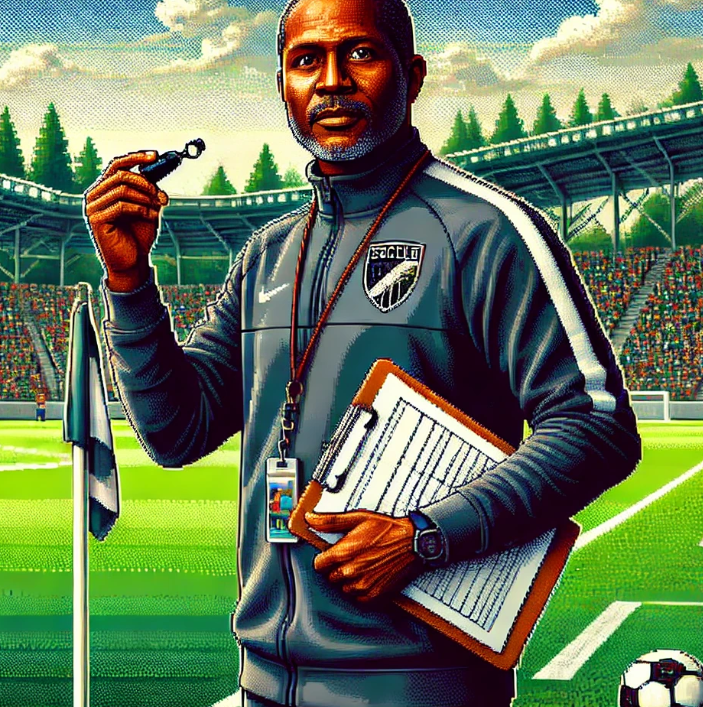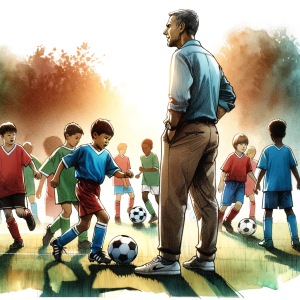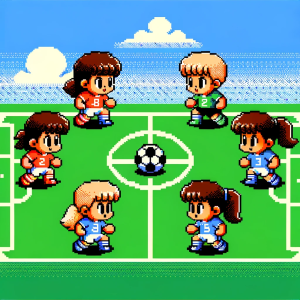
The Unequal Journey of Minority Soccer Coaches
Imagine stepping into a soccer academy as a coach, ready to inspire young talent. Now, imagine that your skills and passion are often overshadowed by assumptions tied to the color of your skin. This is the reality for many minority coaches in soccer academies across England. The field may look equal from the stands, but behind the scenes, racial biases impact who gets hired, who advances, and who remains on the sidelines. Recent research by Steven Bradbury and Dominic Conricode reveals a systemic problem in English soccer academies: minority coaches face significant barriers rooted in race and stereotypes, impacting their careers and the entire coaching culture.
Racialized Spaces in Soccer Academies
In England’s soccer academies, the image of fair play doesn’t always match reality. White academy managers often describe these spaces as “race-neutral,” meaning they believe everyone has an equal shot based on skill alone. But for minority coaches, these spaces feel anything but neutral. Many report daily microaggressions—subtle, often unconscious racial slights that undermine their sense of belonging. For instance, minority coaches shared that their expertise and passion were often questioned or dismissed by their white colleagues, who viewed them as “out of place” or lacking the leadership qualities expected in elite coaching.
These racialized spaces aren’t just uncomfortable; they create an uphill battle for minority coaches, who have to work harder than their white counterparts to gain respect and recognition. While some white managers may genuinely believe they are impartial, this research shows that a “colorblind” approach—ignoring race altogether—often hides the persistent inequalities that minority coaches face every day.
Stereotyping Limits Career Growth
When it comes to career advancement, stereotypes can be as powerful as skill. The study found that white coaches were more likely to be seen as strategic thinkers or natural leaders. In contrast, minority coaches were stereotyped as “natural athletes” with less intellectual capacity. This assumption limits opportunities: white coaches are encouraged to take on leadership roles, while minority coaches are expected to connect with players from similar backgrounds or handle “lower-level” responsibilities.
One coach interviewed in the study put it clearly: despite years of experience and a deep understanding of the game, he was overlooked for promotions because he didn’t fit the traditional image of a “soccer coach.” This type of stereotyping traps talented coaches in roles where their potential is ignored or undervalued, simply because of assumptions about their abilities.
Racial Bias in Coach Assessments
Assessments of a coach’s skills and potential often determine who advances in their career and who does not. Unfortunately, the evaluation of minority coaches is sometimes shaped by subtle, often unconscious, biases. For example, coaches with “non-English” names reported that they felt their resumes were less likely to be selected or that they were judged more harshly during interviews. White coaches, on the other hand, were often assessed without the weight of racial assumptions clouding their performance reviews.
These biases can be hard to pinpoint, making it difficult for minority coaches to address or overcome them. Many academy managers unknowingly favor white coaches who reflect their own cultural and professional backgrounds, creating a system where racial bias subtly, but powerfully, impacts who gets hired, who gets promoted, and who stays stuck in entry-level roles.
Racialized Outcomes and Career Barriers
The unequal treatment in hiring, stereotyping, and assessments results in career roadblocks for minority coaches. Although minority coaches make up 17% of academy staff, few reach senior-level positions. Instead, they are often confined to roles with less job security, fewer opportunities for advancement, and more limited responsibilities.
This pattern isn’t just about individual careers—it affects the entire culture within soccer academies. When a coaching staff lacks diversity, it misses out on a range of experiences and perspectives that can enrich the environment for young players. Minority coaches bring unique insights, especially when working with players from diverse backgrounds, and their exclusion from leadership roles perpetuates a one-dimensional approach to soccer training and development.
Applications: How This Research Can Shape Soccer Academies
The implications of Bradbury and Conricode’s study go beyond individual stories; they highlight actionable steps for creating a more inclusive soccer culture. Here’s how these findings can be applied in coaching, player development, and club management:
Coaching
- Encourage Anti-Racist Training: Regular training for all staff can raise awareness about unconscious biases and teach coaches how to create a welcoming, inclusive space for everyone.
- Evaluate Performance Fairly: Develop standardized evaluation criteria that focus on skills and results, reducing the role of subjective judgments that may be influenced by bias.
Player Development
- Promote Diverse Role Models: Young players from minority backgrounds benefit from seeing coaches who look like them in leadership positions, fostering a sense of belonging and ambition.
- Highlight Cultural Competence: Recognize and value coaches’ cultural insights, particularly for guiding young players through challenges both on and off the field.
Club Management
- Reform Hiring Practices: Adopt transparent hiring processes that ensure diversity in selection panels and create clear pathways for minority coaches to move into leadership roles.
- Implement Mentorship Programs: Provide support systems for minority coaches, helping them navigate career progression and offering them the same networking opportunities as their white counterparts.
Conclusion
Breaking down racial barriers in soccer academies requires a commitment to change from the top down. Soccer is more than a game; it’s a field where young players learn values, build skills, and develop identities. By actively working to dismantle biases and promote diversity, soccer academies can create a more equitable environment that reflects the global, inclusive spirit of the game. For coaches and players alike, an academy free from racial prejudice isn’t just an ideal—it’s a necessary step toward making soccer a fair and welcoming space for all.
In the end, fostering an environment where minority coaches can thrive benefits everyone. It brings new perspectives to the field, strengthens the community, and sends a powerful message: soccer should be a game that truly belongs to all.
Elevate your understanding of the beautiful game with ‘This Week in Soccer’.
Subscribe now to our newsletter and be part of a community that transforms theoretical knowledge into practical mastery. Don’t miss out on the chance to access groundbreaking insights and redefine your approach to soccer. Subscribe today!



